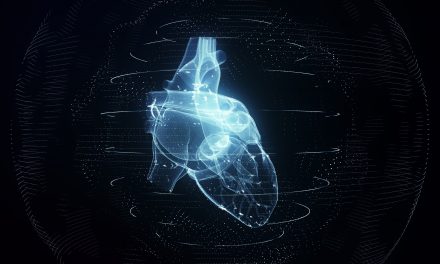This report is written for people who had high scores on the Thyroid portion of our Health Questionnaire.
The adrenal glands are the glands in the body that help you respond to stress. Stress can undermine your health. The connection between stress and high blood pressure, heart disease, and many digestive problems is well-established in the medical literature. Stress creates hormonal and blood sugar changes, causes the body to excrete nutrients and adversely affects the immune system.
Stress challenges the function of the adrenal gland. Traditional medicine does not usually recognize problems with the adrenal glands, unless it’s something like Addison’s disease—which is frank failure of the adrenal glands. Either the adrenal glands are functioning or they are not. In natural health care, adrenal function is something that is of interest.
The adrenal glands are directly affected by stress. They are responsible for the “fight or flight” response. Hans Selye, MD, conducted some experiments creating stress in rats. The rats were made to tread water with their legs tied until they became exhausted and died.
Dr. Selye took the rats at various stages of their ordeal and examined their adrenal glands. He found that the adrenal glands responded to stress in three distinct stages. In the initial stage (the alarm reaction), the adrenal glands enlarge and the blood supply to them increases. As the stress continues (the resistance phase), the glands are large and functioning well. Eventually, if the stress continues, the glands reach the third stage, which is adrenal exhaustion.
Adrenal hyperfunction is when the adrenals are being challenged by stress, but are adequately responding. People who have adrenal hyperfunction may or may not have symptoms. They are in Selye’s “resistance phase”. They may be prone to sports injuries or tendonitis. They may have insomnia, GI symptoms, a tendency toward food cravings, a tendency to skip meals, have anxiety or heart palpitations. There may be other symptoms as well, stress can trigger almost any disease or set of symptoms, or at least make any health problem worse. Sometimes they feel like they are really “on” and don’t have any problems, but in reality they are a ticking time bomb.
Adrenal hypofunction is when the adrenals are not adequately responding to stress and could possibly begin to fail People who have adrenal hypofunction may suffer from allergies, asthma, back pain, knee pain, muscle tightness (sometimes so severe as to be called “fibromyalgia”), fatigue and depression. There may be other symptoms as well, stress can trigger almost any disease or set of symptoms, or at least make any health problem worse.
The adrenal glands produce their hormones in response to stress. They are responsible for the fight or flight response. In a stressful situation, they raise your blood pressure, transfer blood from your intestines to your extremities, increase your heart rate, suppress your immune system and increase your blood’s clotting ability.
This response is meant to be short-lived. When primitive man walked through the forest, he’d see a wild animal. His heart rate would increase, his pupils would dilate, his blood would go out of his digestive system and into his arms and legs, his blood clotting ability would improve, he would become more aware and his blood pressure would rise. At that point he’d either pick up a stick and try to fight the animal or run. The physiological changes brought on by the adrenal glands would make the body more efficient at doing either of those things. It is called the fight or flight response.
There is some new research that indicates that women respond differently to stress than men. For a woman, stress creates a change in brain chemistry that makes her want to bond with other women and tend to her children. This is new research, but look for new information from the scientific community on the difference between how men and women respond to stress.
Back to our cave man, if he survived the ordeal, chances are it would be a while before such a strain was put on the adrenal glands and the rest of his body. He would have an opportunity to relax, eat nuts and berries (and a little meat from the wild animal, if he was lucky.) His adrenal glands would have a chance to recover.
Many people in modern society do not have the luxury of a recovery period for their overworked adrenal glands. The changes caused by the overproduction of adrenal hormones stay with them. The stimulation of the adrenal glands causes a decrease in the immune system function, so an individual under constant stress will tend to catch colds and have other immune system problems, including allergies. Blood flow to the digestive tract is decreased. Stress causes many digestive problems such as indigestion, colitis and irritable bowel. Adrenal hormones cause an increase in the blood clotting ability, so prolonged stress can lead to formation of arterial plaque and heart disease.
Worrying makes your adrenal glands work. Relaxing and thinking peaceful thoughts enables them to rest and heal. That is why Yoga, meditation and hobbies are so good for you. You go a long way in preserving your health and energy if you do not fret about things over which you have no control. It’s the amount of worry and not necessarily the size of the problem that stresses your adrenal glands. If you worry a lot about little problems, you do as much damage to your adrenal glands as someone who really has a lot of stress. If you can control your worrying when under stress, you minimize the damage stress does to your health. A wise man once said that worry is interest paid in advance on money you haven’t even borrowed yet.
Selye described the progression of stress on the adrenal glands as the general adaptation syndrome. The first stage is called the alarm reaction. This is when someone (with healthy adrenal glands) can perform amazingly well when the need arises. In this stage, the adrenal hormones become depleted, initially. The primitive man, seeing the saber tooth tiger, was able to run faster than he ever dreamed possible during the alarm reaction.
If the stress continues, the body moves into the resistance stage, during which the adrenal glands become enlarged. The individual is responding to the stress and handling it. A rat kept in a very cold room adapts and begins to handle the cold. A rat who has had no previous cold stress will not tolerate the cold the same way that a rat in the resistance stage will. A person in the resistance stage may feel keyed up. The person may have cold, clammy hands; a rapid pulse or reduced appetite, but hasn’t begun to feel any of the more serious symptoms of the next stage. Like the rat, this person seems to be handling the stress very well. Unfortunately, this is not a healthy situation, because it stresses the entire body and will eventually lead to the third and final stage of adrenal stress—the exhaustion stage.
During the exhaustion stage the adrenal glands begin to fail to meet the demands placed upon them. During this stage, the individual begins to have a variety of symptoms including fatigue, digestive problems, obesity, depression, dizziness, fainting, allergies and many other problems.
People with weak adrenal glands frequently crave coffee and sugar, as well as salt. Sugar and caffeine stimulate the adrenal glands. It’s as if your adrenal glands are two horses towing a wagon load of bricks up a mountain. Sugar or caffeine is the whip you use to get the horses to keep trying. What they need to get to the top of the mountain is nourishment and a rest period.
Perhaps one of the most serious implications of stress may be in conjunction with a magnesium deficiency. Stress increases the need for magnesium. An article appearing in the Journal of the American College of Nutrition (1994;13(5):429-446) states that when stress causes the release of catecholamines and corticosteroids, can increase a magnesium deficiency. Stress and magnesium deficiency can lead to vasoconstriction and platelet aggregation. This can increase the risk of damage to the heart, cardiovascular disease, arrhythmias and even sudden cardiac death. Depleted magnesium levels due to stress can play a role in eclampsia in pregnant women. It can also be an aggravating factor in asthma.
Omega-3 fatty acids may be useful in mitigating stress. A prospective cohort study involving nearly 8,000 subjects was published in the European Journal of Nutrition (2007; 46(6): 337-46). The authors concluded that there is taking omega-3 fatty acids may be of benefit to a variety of mental disorders including anxiety, depression and stress. Other research appearing in the journal Hypertension (November 1, 2004;44(5):732-738) found that DHA supplementation reduced vasoconstriction due to psychological stressors.
Studies have shown that vitamin C may increase tolerance to stress. An animal study appearing in the Medical Tribune (September 23, 1999;40(16):4) found that rats given vitamin C, when stressed, produced less corticosterone (a stress hormone in rats) than rats not given vitamin C. The supplemented rats also had higher immune function, larger thymus glands and had their adrenal glands became less enlarged than rats not receiving vitamin C. Older research supported the idea that vitamin C (as sodium ascorbate) can be beneficial to allergy patients—and the mechanism may be through supporting the adrenal glands. A review article appearing in the American Journal of Digestive Disorders (September 1947;302-306) states that between one and two grams of sodium ascorbate per day is beneficial to allergy patients. The sodium ascorbate plays a role in adrenal function. One study involving 50 subjects with asthma, whole adrenal gland extract in conjunction with a high salt intake resulted in improvement of symptoms in 42 of the subjects. Sodium ascorbate both supports the adrenal gland and addresses the sodium/potassium imbalance caused by stress.
Research appearing in the Journal of International Sports Nutrition (2008; 5: 11) shows that phosphatidylserine may reduce stress hormone levels. The study was a small, double-blind crossover design study that found that supplementation with phosphatidylserine supplementation for 10 days reduced exercise induced stress and reduced mean peak cortisol concentrations from moderately intensive exercise.
To effectively treat the adrenal glands, you must eliminate as much stress from your life as possible. Emotional stress is the kind of stress most people think of when stress is mentioned, but there are many different kinds of stress. Thermal stress results from being exposed to extremes of temperature; physical stress from heavy physical work, poor posture, structural misalignments, lack of sleep and being overweight; and chemical stress from ingestion of food additives, exposure to pollutants and consumption of sugar and alcohol. Changes in blood sugar are also a form of chemical stress. Eating frequent, small meals is often very helpful, since people suffering from hypoadrenia are often hypoglycemic (having low blood sugar).
Situations are not always controllable, but stress is. Stress is cumulative. Emotional, structural and chemical stresses all affect the body the same way. Your adrenal glands do not know the difference between an IRS audit, treading water or excessive sugar consumption; excess sugar consumption will add to the stress of the IRS audit.
If you reduce the stress that you can control, stressful situations will not have as much of a physical effect on you. For instance, eating frequent meals and avoiding sugar will reduce stress on the adrenal glands. So even if you can’t do anything about Aunt Millie and Uncle Edgar coming to spend the summer, you can reduce your stress by controlling your diet. Also, how you think of the stress will make a difference in the health of your adrenal glands. Aunt Millie’s handy tips on how you should raise your kids or clean your house, or Uncle Edgar’s penchant for eating everything that isn’t nailed down (without offering to pay for groceries) won’t stress your adrenal glands if you don’t focus on it.
If you can’t change your work situation, then improve your diet and get plenty of rest. Change how you think about your job situation. Focus on the positive: You do have a job, you do eat regular meals. (Much of the world doesn’t.) Just do the best you can and think of the things you can’t control in positive terms. To quote the Bible, in Luke 12:25, “And which of you with taking thought can add to his stature one cubit?” Think to yourself, “What could be good about this situation?” Then take a minute to really look for positive answers.
Hanging on to anxiety over past situations is stressful. Thought has power. Worry gives you all of the physiologic responses of Selye’s rats or the caveman facing the wild animal. It’s a waste of energy and it undermines your health.
Your adrenal glands simply don’t know the difference between imagined danger and real danger. Think about it; if you hear a noise at night and think it’s the wind, you can go back to sleep. If you think it’s an intruder you can’t get back to sleep even after you get up to investigate. The thought of facing an intruder made the adrenal glands start producing their hormones.
Meditation and biofeedback have been of such value in controlling stress. They don’t help with the situation, just how you perceive it and your body’s response to the stress. Doctors are beginning to find that laughter helps the prognosis of cancer patients. They even have patients watch sitcoms in the hospital: “Mr. Smith, it’s time for your chemotherapy and ‘Lucy’ reruns.”
Minimizing chemical stress is also important. We have plenty of chemical stress today. Environmental pollution, food additives, sugar, alcohol and caffeine contribute stress to your adrenal glands. You must remove chemical stresses from your diet—effortlessly and without putting yourself under pressure. Gradually improve your diet by removing chemical additives. Move toward a more organic way of eating. Enjoy the change without fretting over how your diet isn’t perfect yet.
Ironically, stress often makes you crave the foods that are bad for you. While under stress, it is hard to be diligent in keeping additives and refined sugar out of the diet. Clients often complain that they have no time and can’t eat properly. Lack of time really isn’t the problem because raw nuts, fruits and vegetables take no time to prepare. Lack of time is usually used as an excuse to give in to craving the wrong foods. Once you understand that, you can eat healthily with little effort
Eating sugar and skipping meals are two things that are especially stressful to the adrenal glands, which work to maintain your blood sugar level. Eating sugar causes a temporary increase in blood sugar, which soon drops. Skipping meals also causes the blood sugar to drop. The adrenal glands then have to work to increase the blood sugar. Hypoadrenia and hypoglycemia (low blood sugar) usually exist together.
Possible Signs and Symptoms:
Poor adrenal function can be the source of many health problems. Some of the symptoms that you may experience with poor adrenal function include:
- Fatigue
- Depression
- Joint pain (especially in the low back and knee)
- Food cravings (especially salt, sugar and caffeine).
- Hypoglycemia
- A tendency toward sports injuries
- Digestive disturbances
Poor adrenal function can also be the underlying cause of some known diseases. People with some of the conditions listed below often experience relief when problems with the adrenal glands are addressed:
- Asthma
- Allergies
- Colitis
- Irritable bowel
- High blood pressure
- Low blood pressure
- Fibromyalgia
- Chronic Fatigue Syndrome
- Frequent colds or infections
- Migraine headaches
Hypoadrenia is caused simply by stress. Most people think of stress as worry, or emotional stress. There are other kinds of stress. There is chemical stress from eating refined food or being exposed to toxic chemicals. Thermal stress is from being exposed to extremes of temperatures. Structural stress can result from subluxations or muscle spasm. Stress is cumulative. A poor diet will make a stressful situation at work harder on your body.
HEALTH STRATEGIES
Dietary and Lifestyle Guidelines:
- Meditation: Meditation, Yoga, Tai Chi, or simple deep breathing exercises can help you bring stress under control. Much of the damage that stress does to your health is not due to any external factors, but rather how your mind interprets those factors. Meditation and other techniques help to reduce the harm of stress by quieting the mind.
- Sports and hobbies: Meditation and Yoga may be a little “New Age” for some people. Hobbies are a good solution for these people. Most hobbies are relaxing; your mind has to focus on a simple task rather than on sources of stress.
- Exercise: Moderate aerobic exercise is good. This is exercise that uses large muscles repetitively and is mild enough that you can carry on a normal conversation during the activity. Anaerobic (exercising so hard that you can’t carry on a normal conversation) exercise can be stressful and should be limited while the adrenal glands are recovering. Obviously you should discuss any exercise program with your physician.
- Diet: There are many types of stress. Chemical, physical, thermal, and mental stresses can all cause harm to the body. Stress is cumulative. A stressful job situation is compounded by a poor diet. Make sure that you get adequate protein and drink plenty of water. Avoid chemical additives, sugar, refined carbohydrates and hydrogenated oil. Eat plenty of vegetables and make sure that you get enough protein. At mealtime relax and focus on enjoying your food; don’t eat on the run.






